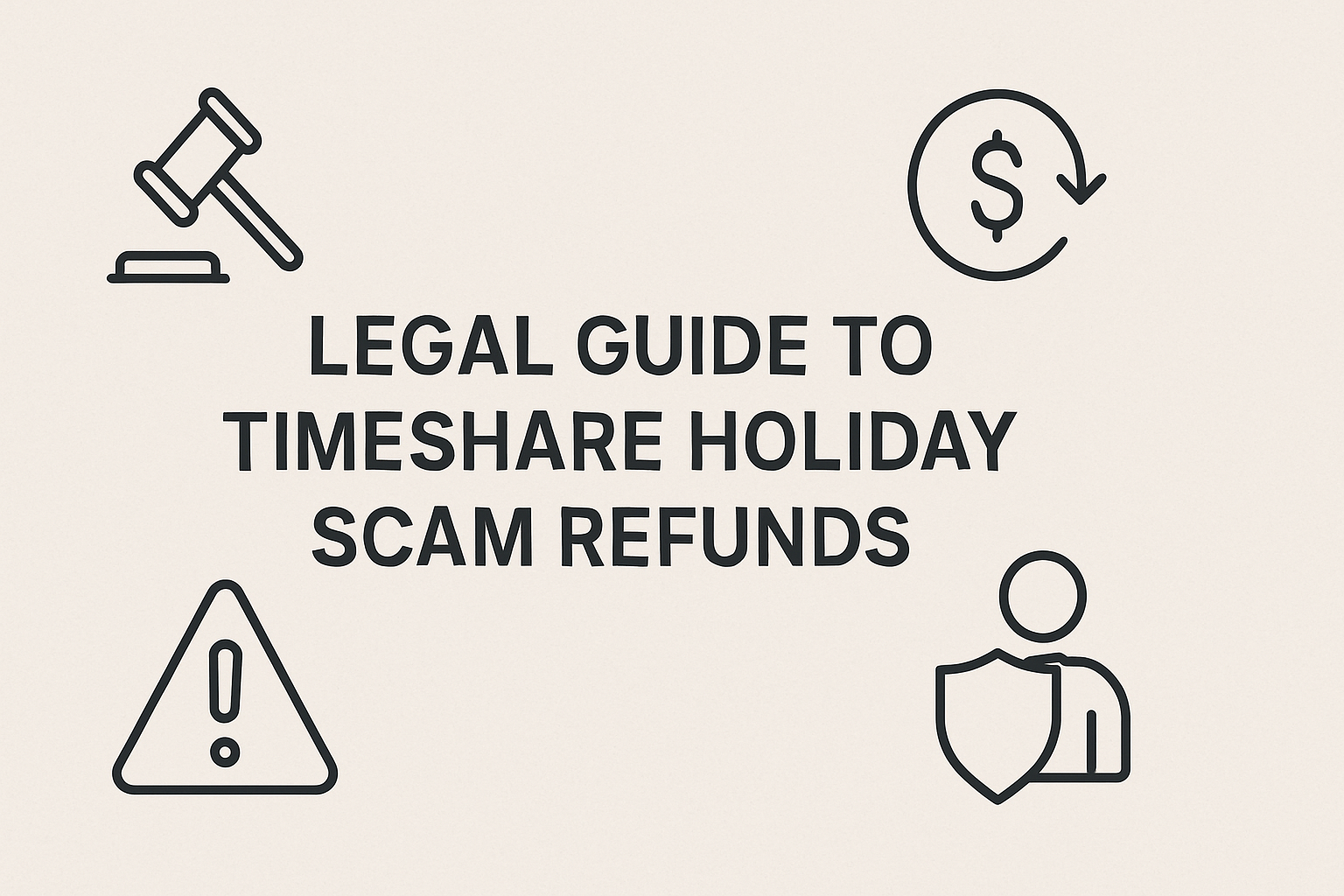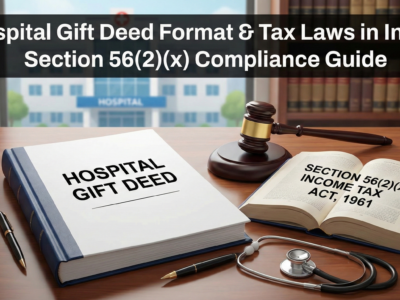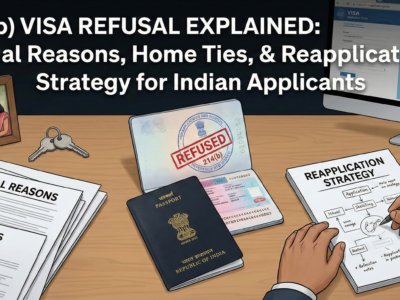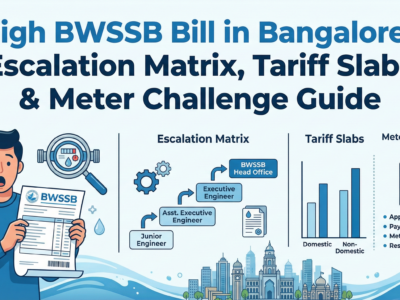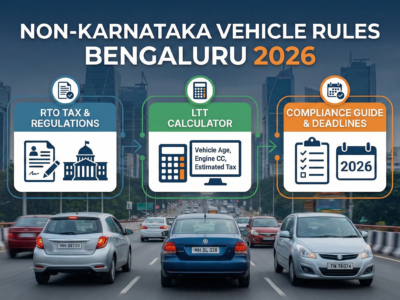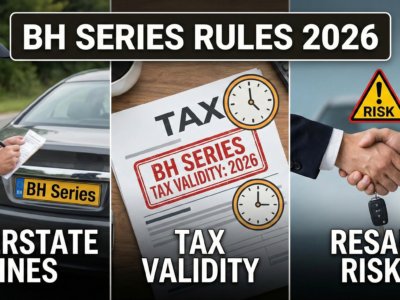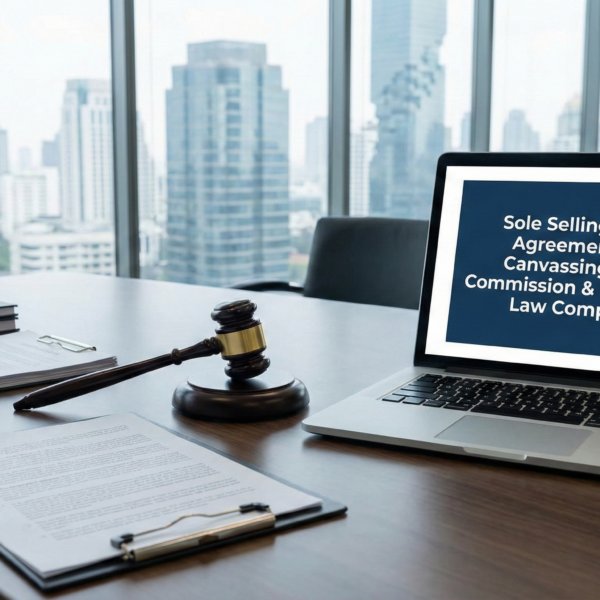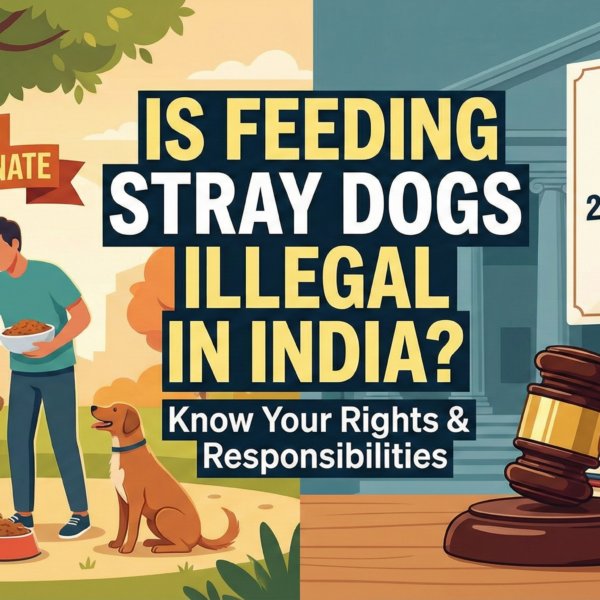You filled out a coupon for a “free holiday,” sat through a high-pressure presentation, and now you’re locked into a vacation membership you regret. It’s a distressing experience, but you are not powerless. The law is on your side. This comprehensive guide is designed to empower you with the knowledge and tools needed to fight back against deceptive timeshare companies. We’ll walk you through your legal rights under Indian law, provide a step-by-step action plan to reclaim your money, and show you exactly what evidence you need to build a strong case for a full refund.
Securing a Refund from a Mis-sold Timeshare Vacation
A comprehensive legal guide for Indian consumers trapped in high-pressure vacation membership scams.
You filled out a coupon for a "free holiday" and now you're ₹9,500 poorer, locked into a vacation membership you never wanted. Sound familiar? You're not alone. This guide breaks down the legal pathways available to consumers in India to fight back against deceptive timeshare companies and reclaim their hard-earned money. We'll explore your rights, the evidence you need, and a step-by-step action plan.
The Anatomy of a Timeshare Scam
1. The Bait
A "free" gift or holiday voucher from a lucky draw at a mall or supermarket. This is the hook to get your contact details.
2. The Presentation
A high-pressure, hours-long sales pitch disguised as a "presentation". You're isolated and tactics are used to prevent clear thinking.
3. The Close
Misleading promises, hidden fees, and coercive tactics to get you to sign a "non-refundable" contract and make an immediate payment.
The Psychology of the Sale: Recognizing High-Pressure Tactics
The sales environment is not accidental; it is a carefully engineered process designed to bypass rational thought. Understanding these tactics is key to explaining why your consent was not freely given.
Emotional Manipulation
Salespeople often appeal to your aspirations for a better lifestyle or create guilt for not providing the "best" for your family.
False Urgency
Phrases like "this price is only for today" or "this is the last membership at this rate" are used to prevent you from taking time to think and research.
Social Proof & Isolation
You are isolated from outside advice while being told that many others are happily signing up. The "tag-team" approach, where a "senior manager" comes to offer a special deal, is designed to make you feel special and increase pressure.
Your Legal Arsenal: Key Indian Laws
Your fight for a refund is backed by powerful legislation. Understanding these laws is the first step to building a strong case.
The Consumer Protection Act, 2019
This is your primary weapon. It protects you from "Unfair Trade Practices" like false advertising and deceptive sales tactics. The act of luring you with a free gift and then pressuring you into a sale is a classic example.
The Indian Contract Act, 1872
This law states that a contract is only valid if consent is "free". If your consent was obtained through coercion, undue influence, or fraud, the contract is voidable, meaning you have the right to cancel it.
Understanding the Timeshare Model in India
A Legally Ambiguous Product
Unlike many countries, India lacks specific laws to regulate the timeshare industry. This means companies operate in a grey area, and their contracts are fully subject to general consumer and contract laws. Most memberships in India are not for property ownership but are a "right to use," which is essentially a pre-paid service contract.
Why This Matters to You:
The lack of specific regulation means the company cannot hide behind complex industry-specific rules. Their contract must stand up to the broad and powerful protections of the Consumer Protection Act. The very act of selling a product with such a questionable legal foundation can itself be argued as an unfair trade practice.
Investigative Deep Dive: The Deceptive Branding Tactic
Leveraging a Trusted Name
A crucial element of your case can be the company's name itself. Often, these vacation clubs choose a name that is confusingly similar to a large, reputable corporation in another sector (e.g., a major real estate developer). A consumer, hearing a familiar and trusted brand name, is likely to lower their guard and assume a level of quality and reliability that does not exist.
This is not a coincidence. It is a deliberate strategy to leverage the goodwill and trusted reputation of an unrelated major brand to mislead consumers.
Your Legal Argument:
This act of using a deceptively similar brand name is a powerful piece of evidence for Fraud under Section 17 of the Indian Contract Act. It demonstrates an intent to deceive you from the very first moment, creating a false sense of security and trust. This elevates your claim from a simple service dispute to a case of calculated deception.
Comparing Your Refund Pathways
| Recourse Option | Typical Timeframe | Cost | Success Probability |
|---|---|---|---|
| Invoking Cooling-Off Period | 1-4 Weeks | Minimal (Postal Charges) | Very High (if within period) |
| UPI/Bank Dispute | 2-6 Weeks | Free | Medium |
| National Consumer Helpline (NCH) | 2-8 Weeks | Free | Medium (Depends on company) |
| Legal Notice via Lawyer | 2-3 Weeks | ₹3,000 - ₹10,000 | High (for response) |
| Consumer Commission Case | 6-12+ Months | Low to Medium | Very High (with strong evidence) |
Your Step-by-Step Action Plan
Invoke the "Cooling-Off" Period
Check your contract immediately for a "cooling-off" or "rescission" clause (usually 7-10 days). If it exists, send a written cancellation notice via Registered Post AD and email. This is your strongest and fastest path to a refund.
File a Multi-Level UPI/Bank Dispute
Open your UPI app and raise a dispute. It's crucial to frame it correctly and be prepared to escalate.
- Frame as "Fraudulent Transaction": When filing, select this option. Your justification is that consent for the payment was obtained through deception and coercion.
- Escalate to NPCI: If the app/bank doesn't resolve it in 30 days, file a formal complaint on the NPCI's own portal.
- Final Recourse: If NPCI fails, escalate to the Banking Ombudsman or the Ombudsman for Digital Complaints.
File a Grievance on the National Consumer Helpline (NCH)
Register a formal complaint on consumerhelpline.gov.in or by calling 1915. This creates an official government record of your complaint and forces the company to respond.
Send a Formal Legal Notice
If the company doesn't respond, hire a lawyer to send a strong legal notice. This official document details your legal claims and threatens court action, often prompting a settlement.
File a Case in the Consumer Commission
Your final step is to file a case in the District Consumer Disputes Redressal Commission. With strong evidence, you can claim a full refund, compensation for mental harassment, and legal costs.
Effectiveness vs. Time of Different Recourse Options
Your First 24 Hours: Creating a Contemporaneous Record
This is the single most important action you can take to build your evidence. As soon as possible after the presentation, write down a detailed, chronological account of everything that happened. A record created immediately after the event carries immense weight in a consumer court.
What to Include in Your Record:
- The Timeline: Note the exact start and end time of the presentation. A 3-hour meeting for a "45-minute presentation" is a form of pressure.
- The People: Write down the names or descriptions of the sales representatives.
- The Promises: List every specific verbal promise made (e.g., "access to 5-star resorts," "unlimited day use of Chennai resorts," "inflation-proof holidays").
- The Pressure Tactics: Describe the environment. Were you prevented from discussing privately? Did they dismiss your attempts to research online? Note down phrases like "this is a one-time offer."
- Your State of Mind: Describe how you felt – confused, pressured, anxious, unable to think clearly. This is relevant to proving coercion.
Building Your Case: The Evidence Checklist
A strong case is built on strong evidence. Methodically collect and organize every piece of documentation. This is your proof of the company's misconduct.
Your Contemporaneous Record
The detailed account of events you wrote immediately after the presentation.
The Agreement
The complete, signed contract. This is the core document of your dispute.
Proof of Payment
UPI transaction ID, date, time, and corresponding bank statement.
Correspondence Trail
Every email, letter, and message sent and received, including proof of delivery (RPAD slips).
Challenging the "Non-Refundable" Clause
A key defense for these companies is the "non-refundable" clause you were made to sign. However, the Consumer Protection Act, 2019, gives you a powerful tool to invalidate this: the concept of an "Unfair Contract".
What is an "Unfair Contract"?
Under Section 2(46) of the Act, a contract can be declared unfair if its terms cause a significant imbalance in the rights of the consumer. This includes any term that:
- Imposes a penalty on the consumer for breach of contract which is disproportionate to the loss caused.
- Permits one party to terminate the contract unilaterally without reasonable cause.
- Puts the consumer at a disadvantage in any way.
Your Argument:
You can argue that a "non-refundable" clause in a contract secured through deception and high-pressure tactics is manifestly unfair and puts you at a severe disadvantage. You can ask the Consumer Commission to declare this specific clause null and void, which removes the company's primary legal defense for withholding your money.
Legal Notice Template: Your Formal Demand
Sending a formal Legal Notice, drafted by a lawyer, is a critical step that shows the company you are serious about pursuing legal action. Below is a template that your lawyer can adapt. It consolidates all the legal arguments into a powerful, formal demand.
LEGAL NOTICE
Date: [Date]
To,
M/s [Name of Vacation Membership Company],
[Company's Full Address as per Agreement],
[City, State]
Subject: Legal Notice for Refund of ₹[Amount]/- due to Unfair Trade Practices, Fraud, and Coercion in respect of Membership Agreement No. [Your Agreement Number]
Under the instructions and on behalf of my client, [Your Full Name], son/daughter of [Your Father's Name], residing at [Your Full Address], I do hereby serve you with the following legal notice:
- That you, the Noticee, are engaged in the business of selling vacation memberships.
- That on [Date of Presentation], my client was induced to attend a sales presentation at [Location of Presentation] under the false pretext of having won a prize.
- That during the said presentation, which lasted for over [Number] hours, your representatives engaged in high-pressure sales tactics, created a coercive environment, and prevented my client from having a private discussion or conducting independent research.
- That your representatives made several false and misleading promises (misrepresentations) regarding the quality, availability, and benefits of the membership, which my client relied upon in good faith.
- That this entire process constitutes a calculated "Unfair Trade Practice" as defined under Section 2(47) of the Consumer Protection Act, 2019.
- That my client's consent to the agreement was not free and was obtained through Coercion (Section 15), Undue Influence (Section 16), and Fraud (Section 17) as defined in the Indian Contract Act, 1872, rendering the contract voidable at the option of my client.
- That under such duress, my client was compelled to make a payment of ₹[Amount]/- (Rupees [Amount in Words] only) to you via UPI (Transaction ID: [Your UPI Transaction ID]) on the said date.
- That any clause in your agreement claiming the amount to be "non-refundable" is an "Unfair Contract" term under Section 2(46) of the Consumer Protection Act, 2019, and is therefore null and void.
I, therefore, through this Legal Notice, call upon you to refund the entire amount of ₹[Amount]/- to my client within a period of 15 (fifteen) days from the date of receipt of this notice, failing which my client shall be constrained to initiate appropriate legal proceedings against you in the competent Consumer Disputes Redressal Commission at your risk, cost, and consequence, wherein you shall be liable for the refund, along with interest, compensation for mental agony, and litigation costs.
A copy of this notice is retained in my office for record and further action.
Sincerely,
[Advocate's Name]
[Advocate's Designation]
[Address/Contact Info]
Frequently Asked Questions (FAQs)
The absence of a cooling-off period can itself be used as evidence against the company. You can argue before the Consumer Commission that since competitors and industry practice often include such a clause, its omission makes the contract an "Unfair Contract" under the Consumer Protection Act, 2019. This strengthens your case that the agreement was designed to be anti-consumer from the start.
Absolutely not. This is a common tactic. The law recognizes that if the entire environment is coercive, then any document signed within that environment—including a declaration that you weren't coerced—is also a product of that same pressure. A consumer court will look at the totality of the circumstances. Your detailed contemporaneous record of the high-pressure tactics will be crucial to counter this.
While filing a full court case might seem disproportionate, engaging a lawyer to send a formal Legal Notice is a highly cost-effective step. The notice itself often costs less than the claim amount and has a high success rate in forcing a settlement. Furthermore, if you do proceed to the Consumer Commission, the law allows you to claim your legal costs from the opposing party as part of the final award.
Concluding Analysis and Strategic Recommendations
The situation is legally favorable to the consumer. Success depends on a swift, strategic, and multi-pronged course of action. The following prioritized plan is recommended:
1. Immediate Priority (Day 0-10): Invoke the Cooling-Off Period if available. This is the most direct path to a refund and requires no proof of wrongdoing, only timely action.
2. Concurrent Actions (Day 1): Initiate a UPI Dispute framed as a "Fraudulent Transaction" to apply financial pressure. Simultaneously, send a formal refund demand letter via RPAD and email to create a paper trail.
3. Escalation Phase (After 7-15 Days): If there's no response, engage a lawyer to send a formal Legal Notice and file a complaint on the National Consumer Helpline (NCH) to create an official government record.
4. Final Recourse: If all else fails, file a formal case with the District Consumer Commission. The evidence gathered in the previous steps will form the basis of a very strong complaint.
Disclaimer:
This article provides general information and does not constitute legal advice. The information is not a substitute for professional legal advice. Always consult with a qualified lawyer for advice tailored to your specific situation.

